13 Tales of Terror
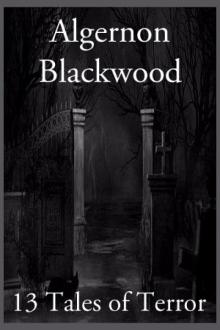

Author: Algernon Blackwood
Category: Horror
Published: 2011
Series:
View: 699
Read OnlineABOUT THIS EBOOK The stories selected for this eBook came from a variety of sources. All the stories were either scans of books I own or in digital format---pdf, rtf, txt and/or HTML 1.0 files. I converted, cleaned-up and re-formatted all the stories contained in this eBook to better suit an eBook reader. I “test” my final epubs on a Nook Color and an iPad2 to ensure the best possible reading experience; however, not all eReaders are the same and don’t always display epubs in the same way as others. This is especially true when it comes to the Table of Contents (ToC), images within the epub and the display of the book cover. I adhered as much as possible to the original punctuation, spelling and sentence structure in each story. Many of these stories were written with a very specific structure and style that may seem odd when presented in an electronic format. I found this especially true in the way many characters’ dialogue was written. Please understand, in an effort to preserve the author’s text, some words, structures etc. may seem like errors that I missed while creating this eBook for you. No words or text of the authors’ original works were omitted or altered; each story is word-for-word as presented in the original source file. If you find errors, or run into any difficulty with this eBook please feel free to contact me through Bolt. Finally, it is my sincerest wish that you have the best possible reading experience with this eBook. Flyboy707 October, 2011 ABOUT THE AUTHORAlgernon Henry Blackwood was born on march 14, 1869 and was an English short story writer and novelist. Blackwood was one of the most prolific writers of ghost stories in the history of the genre. He was also a journalist and a broadcasting narrator. S. T. Joshi has stated that "his work is more consistently meritorious than any weird writer's except Dunsany's" and that his short story collection Incredible Adventures (1914) "may be the premier weird collection of this or any other century". Blackwood was born in Shooter's Hill (today part of south-east London, but then part of northwest Kent) and educated at Wellington College. His father was a Post Office administrator who, according to Peter Penzoldt, "though not devoid of genuine good-heartedness, had appallingly narrow religious ideas". Blackwood had a varied career, working as a milk farmer in Canada, operating a hotel, as a newspaper reporter in New York City, bartender, model, journalist for the New York Times, private secretary, businessman, and violin teacher. Throughout his adult life, he was an occasional essayist for various periodicals. In his late thirties, he moved back to England and started to write stories of the supernatural. He was very successful, writing at least ten original collections of short stories and eventually appearing on both radio and television to tell them. He also wrote fourteen novels, several children's books, and a number of plays, most of which were produced but not published. He was an avid lover of nature and the outdoors, and many of his stories reflect this. To satisfy his interest in the supernatural, he joined the “Ghost Club”. He never married; according to his friends he was a loner but also cheerful company. Jack Sullivan points out that "Blackwood's life parallels his work more neatly than perhaps that of any other ghost story writer. Like his lonely but fundamentally optimistic protagonists, he was a combination of mystic and outdoorsman; when he wasn't steeping himself in occultism, including Rosicrucianism and Buddhism, he was likely to be skiing or mountain climbing.” His two best known stories are probably "The Willows" and "The Wendigo". He would also often write stories for newspapers at short notice, with the result that he was unsure exactly how many short stories he had written and there is no sure total. Though Blackwood wrote a number of horror stories, his most typical work seeks less to frighten than to induce a sense of awe. Good examples are the novels The Centaur, which climaxes with a traveller's sight of a herd of the mythical creatures; and Julius LeVallon and its sequel The Bright Messenger, which deal with reincarnation and the possibility of a new, mystical evolution in human consciousness. Algernon Blackwood dies on December 10, 1951. He was 82 years old.
 Monster Island (Zombies #1)
Monster Island (Zombies #1)_preview.jpg) New Girl (Anti-Heroes Book I)
New Girl (Anti-Heroes Book I)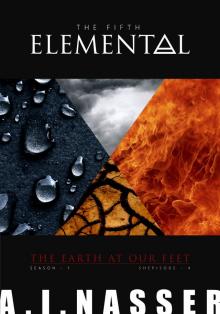 The Fifth Elemental - Shepisode 4 - The Earth at Our Feet
The Fifth Elemental - Shepisode 4 - The Earth at Our Feet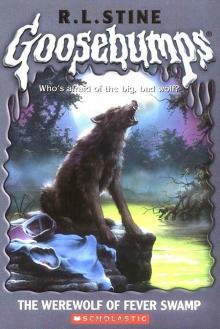 14 - The Werewolf of Fever Swamp
14 - The Werewolf of Fever Swamp I, Crime Writer
I, Crime Writer First Evil
First Evil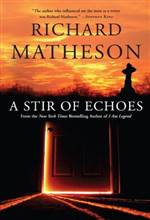 A Stir of Echoes
A Stir of Echoes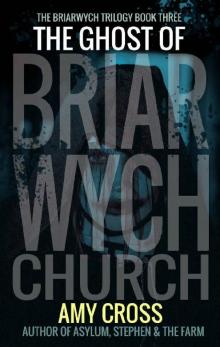 The Ghost of Briarwych Church
The Ghost of Briarwych Church